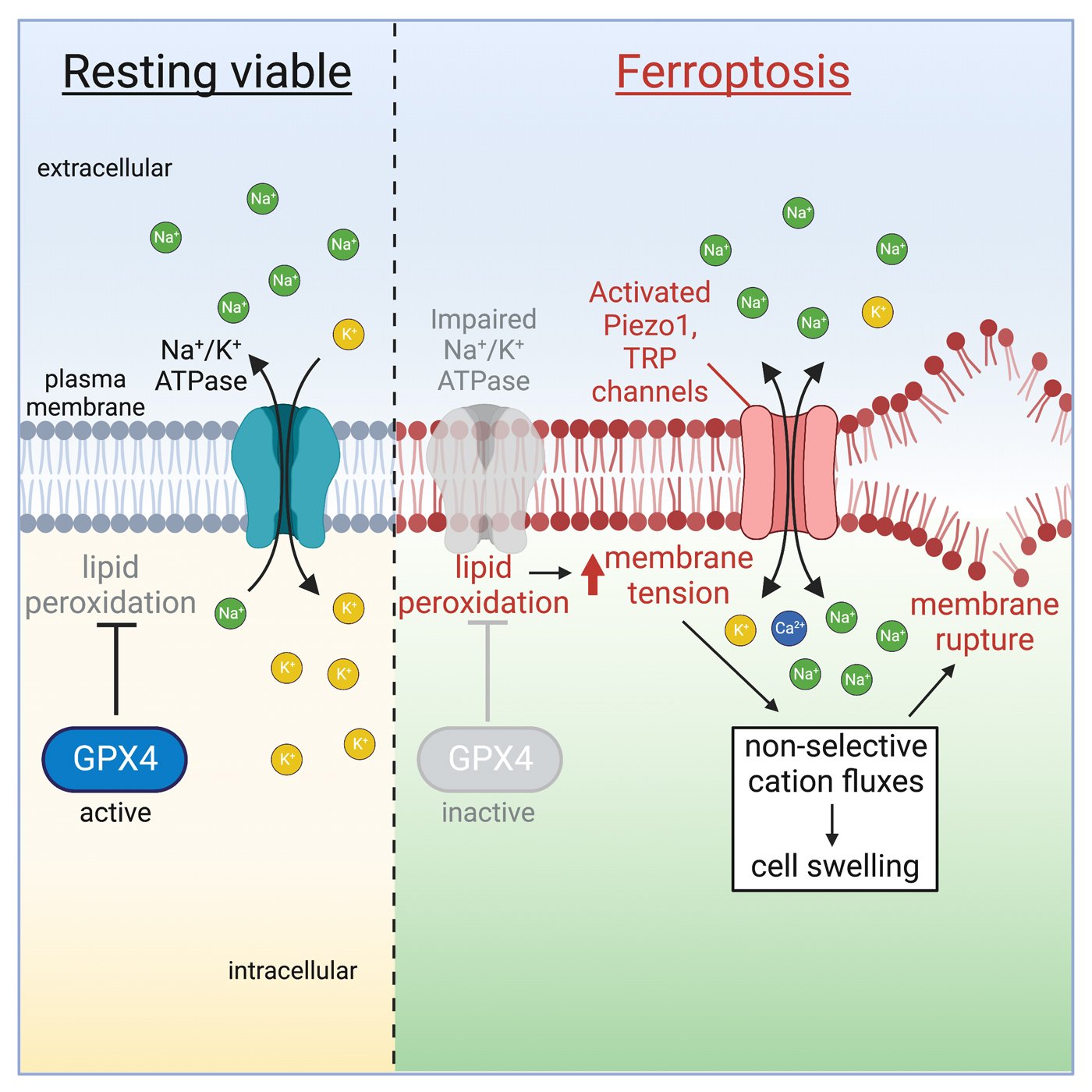A team of researchers at Tohoku University has unearthed some of the biological mechanisms of ferroptosis, a recently discovered type of regulated cell death that is triggered by iron and the accumulation of lipid peroxidation - lipids that have undergone oxidative degeneration. Their discovery reveals an important parameter for controlling ferroptosis and may serve as the basis for future therapeutic strategies.
Ferroptosis has been associated with a variety of diseases, including neurodegenerative, cardiovascular and kidney disease. Ferroptosis may even play a role in the response to certain therapies, such as chemotherapy and radiotherapy. Yet, its novelty means that the processes that take place when ferroptosis occurs, as well as the mechanisms by which lipid peroxidation contributes to ferroptosis, remain not well understood.
The team published their findings in the journal Current Biology on March 9, 2023.
They reported that, during ferroptosis, lipid peroxides accumulated at the plasma membrane, leading to increased tension and permeability to cations. The increased cation content activated the two ion channels Piezo1 and TRP and resulted in the inactivation of the sodium-potassium (Na+/K+)-ATPase, which plays a critical role in maintaining cation-concentration levels across plasma membranes in healthy cells.

"The precise pathways leading to ferroptosis are poorly understood, especially in comparison to other forms of programmed cell deaths such as apoptosis, pyroptosis or necrosis. Moreover, the connection between lipid peroxidation and cell death, or even where this occurs, has remained a mystery," said Atsushi Matsuzawa, co-author of the paper and a professor at the Laboratory of Health Chemistry, Graduate School of Pharmaceutical Sciences, Tohoku University.
To reveal more about the process behind ferroptosis, the researches employed various techniques to measure changes to cell morphology, ion fluxes, and membrane integrity and potential.
These methods allowed the researchers to rule out other areas previously thought to be targeted by lipid peroxidation. "Although mitochondria dysfunction is a consequence of ferroptosis, our study revealed that the initial depolarization of the membrane had no effect on the mitochondrial functional potential. In addition, we also investigated the possibility of lysosomes being the source of lipid oxidation. But we found no effects on lysosomal integrity long after changes in the plasma membrane occurred," added Matsuzawa.
Looking ahead, the team hopes to dig further into the molecular mechanisms of ferroptosis and the mediation of cation fluxes through the Piezo1/TRP channels.
- Publication Details:
Title: Lipid peroxidation increases membrane tension, Piezo1 gating and cation permeability to execute ferroptosis
Authors: Yusuke Hirata, Ruiqi Cai, Allen Volchuk, Benjamin E. Steinberg, Yoshiro Saito, Atsushi Matsuzawa, Sergio Grinstein and Spencer A. Freeman
Journal: Current Biology






